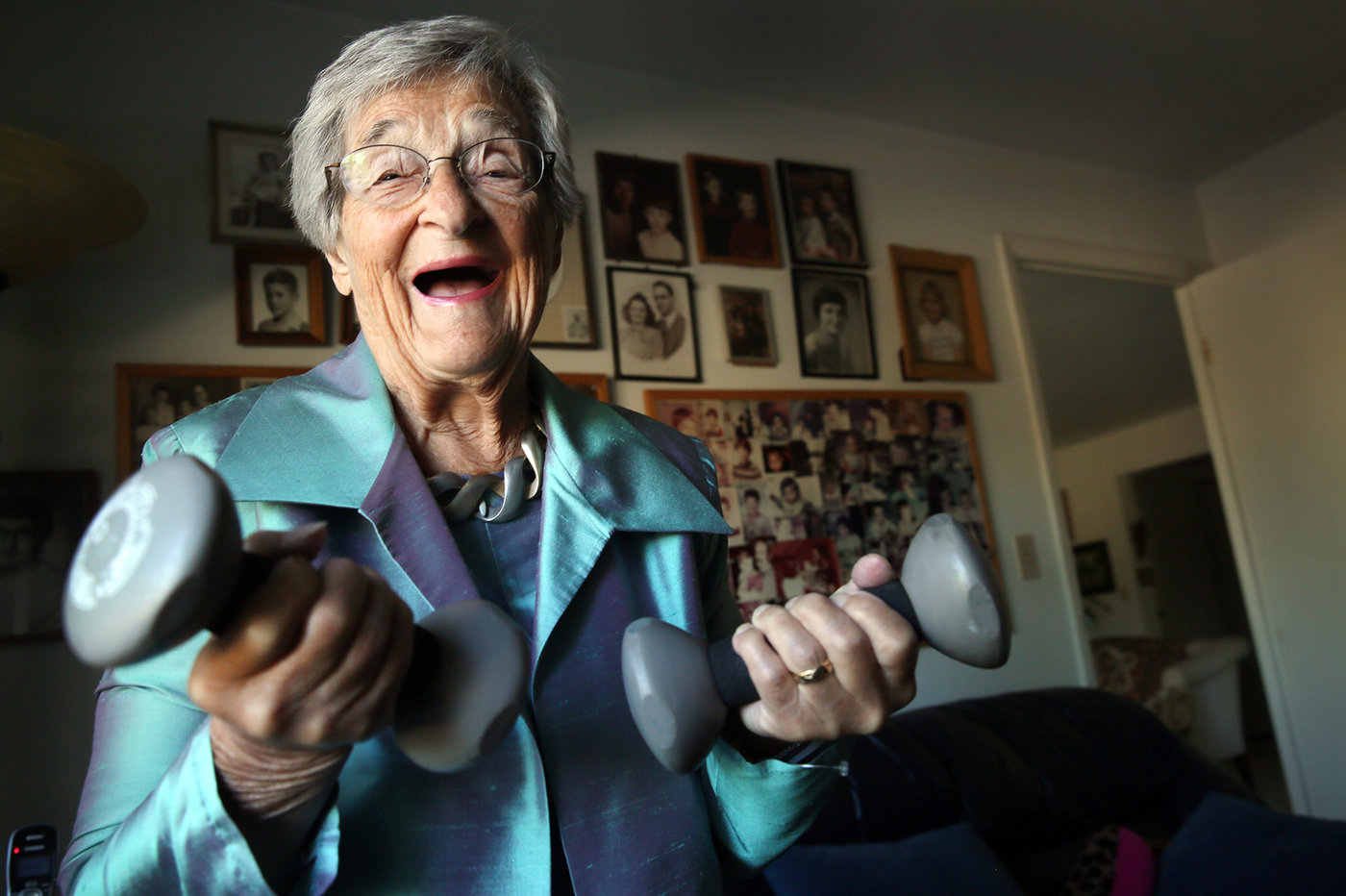By Susan Jaffe | Kaiser Health News | September 23, 2015 | This KHN story also ran in 
When doctors told Robert Madison that his wife had dementia, they didn’t explain very much. His successful career as an architect hardly prepared him for what came next.

Belle Likover, a 95-year-old retired social worker, told Case Western Reserve medical students that growing old gracefully is all about being able to adapt to one’s changing life situation, including health challenges. Lynn Ischay/Kaiser Health News
“A week before she passed away her behavior was different, and I was angry because I thought she was deliberately not doing things,” Madison, now 92, told a group of nearly 200 students at Case Western Reserve School of Medicine in Cleveland. “You are knowledgeable in treating patients, but I’m the patient, too, and if someone had said she can’t control anything, I would have been better able to understand what was taking place.”
Belle Likover recounted for the students how she insisted when her husband was dying of lymphoma that doctors in the hospital not make decisions without involving his oncologist. “When someone is in the hospital, they need an advocate with them at all times,” said Likover, who turns 96 next month. “But to expect that from families when they are in crisis is expecting too much. The medical profession has to address that.”
Madison and Likover were among six people all over the age of 90 invited to talk to second-year medical students this month. The annual panel discussion, called “Life Over 90,” is aimed at nudging students toward choosing geriatric medicine, the primary care field that focuses on the elderly. It is among the lowest-paid specialties, and geriatricians must contend with complex cases that are time consuming and are often not reimbursed well by Medicare or private insurance. And their patients can have diseases that can only be managed but never cured [Continued at Kaiser Health News and at NPR]
![]()
